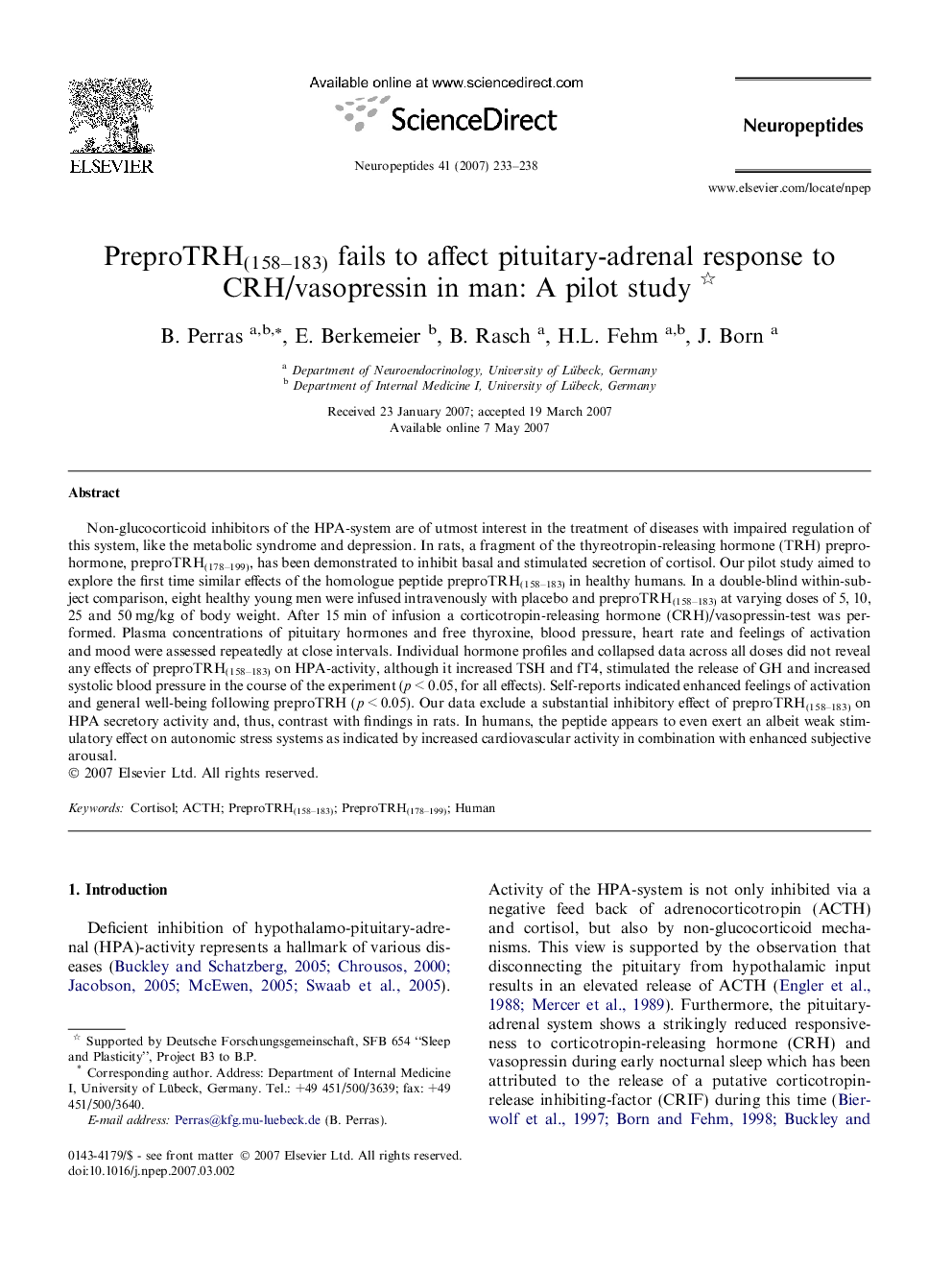| Article ID | Journal | Published Year | Pages | File Type |
|---|---|---|---|---|
| 2808481 | Neuropeptides | 2007 | 6 Pages |
Abstract
Non-glucocorticoid inhibitors of the HPA-system are of utmost interest in the treatment of diseases with impaired regulation of this system, like the metabolic syndrome and depression. In rats, a fragment of the thyreotropin-releasing hormone (TRH) preprohormone, preproTRH(178-199), has been demonstrated to inhibit basal and stimulated secretion of cortisol. Our pilot study aimed to explore the first time similar effects of the homologue peptide preproTRH(158-183) in healthy humans. In a double-blind within-subject comparison, eight healthy young men were infused intravenously with placebo and preproTRH(158-183) at varying doses of 5, 10, 25 and 50 mg/kg of body weight. After 15 min of infusion a corticotropin-releasing hormone (CRH)/vasopressin-test was performed. Plasma concentrations of pituitary hormones and free thyroxine, blood pressure, heart rate and feelings of activation and mood were assessed repeatedly at close intervals. Individual hormone profiles and collapsed data across all doses did not reveal any effects of preproTRH(158-183) on HPA-activity, although it increased TSH and fT4, stimulated the release of GH and increased systolic blood pressure in the course of the experiment (p < 0.05, for all effects). Self-reports indicated enhanced feelings of activation and general well-being following preproTRH (p < 0.05). Our data exclude a substantial inhibitory effect of preproTRH(158-183) on HPA secretory activity and, thus, contrast with findings in rats. In humans, the peptide appears to even exert an albeit weak stimulatory effect on autonomic stress systems as indicated by increased cardiovascular activity in combination with enhanced subjective arousal.
Related Topics
Life Sciences
Biochemistry, Genetics and Molecular Biology
Endocrinology
Authors
B. Perras, E. Berkemeier, B. Rasch, H.L. Fehm, J. Born,
